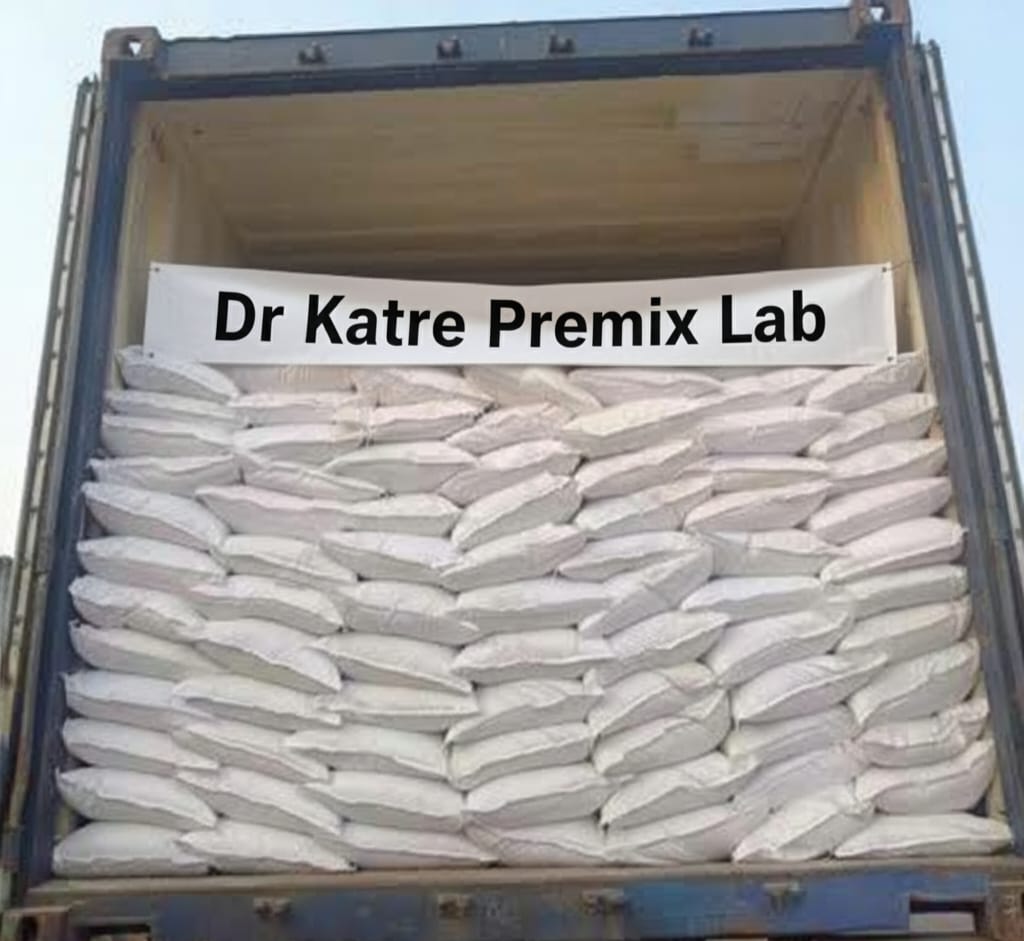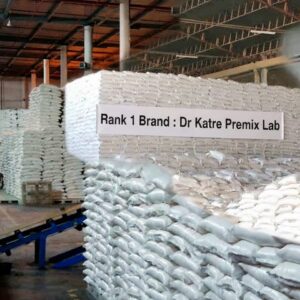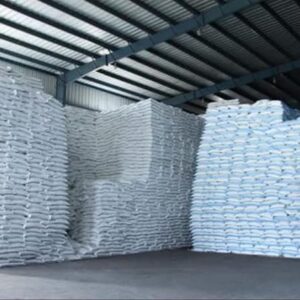High-Performance Enzyme Premixe for Modern Animal Nutrition
Animal nutrition has evolved significantly over the past decade, with enzyme premix becoming essential components for optimizing feed efficiency and animal health. As the global demand for high-quality animal protein continues to rise, feed manufacturers are increasingly turning to specialized enzyme cocktails to enhance nutrient absorption and reduce production costs.
Dr. Katre Premix Lab Private Limited stands at the forefront of this revolution as a premier enzyme premix manufacturer and exporter from India. With operations spanning 27 countries and a turnover exceeding 238.61 Crore in FY 2024-2025, the company has established itself as a trusted partner for feed millers worldwide. Their comprehensive enzyme solutions cater to over 1,15,000 MT of feed monthly, supporting 24 million poultry, 4.60 million pets, and 7.15 million ruminants globally.
The science behind enzyme premixes lies in their ability to break down complex feed components into more digestible nutrients. These biological catalysts accelerate chemical reactions within the animal’s digestive system, unlocking nutrients that would otherwise remain inaccessible. This process not only improves feed conversion ratios but also reduces environmental waste, making enzyme supplementation both economically and ecologically beneficial.
Understanding Enzyme Cocktail Technology
Enzyme cocktails represent a sophisticated blend of multiple enzymes designed to target various feed components simultaneously. Unlike single-enzyme products, these comprehensive formulations address the complex nature of animal feeds, which contain diverse substrates requiring different enzymatic activities.
The most effective enzyme cocktails typically include:
NSP-degrading enzymes such as xylanase, glucanase, and cellulase break down non-starchy polysaccharides that can impede nutrient absorption. These enzymes are particularly valuable in feeds containing high levels of wheat, barley, or other cereals rich in anti-nutritional factors.
Phytase remains one of the most widely used enzymes globally, releasing phosphorus bound in phytic acid. This enzyme not only improves phosphorus availability but also enhances the absorption of other minerals and reduces phosphorus excretion.
Proteases enhance protein digestibility by breaking down complex protein structures into smaller, more absorbable peptides and amino acids. This is especially important for young animals with developing digestive systems.
Carbohydrases including amylase and various glycosidases improve the utilization of starch and other carbohydrates, leading to better energy extraction from feed ingredients.
According to recent studies published in the Journal of Animal Science and Biotechnology, enzyme supplementation can improve feed efficiency by 3-8% while reducing feed costs by 2-5%. These improvements translate to significant economic benefits for commercial operations.
Manufacturing Excellence and Quality Standards
The production of high-quality enzyme premixes requires sophisticated manufacturing capabilities and stringent quality control measures. Dr. Katre Premix Lab operates under ISO 9001:2015 and ISO 22000:2018 certifications, ensuring consistent product quality and safety.
Their manufacturing process incorporates several critical quality checkpoints:
Raw Material Testing begins with comprehensive analysis of all incoming enzyme preparations. Each batch undergoes activity testing to verify enzymatic potency before incorporation into final formulations.
Blending Technology utilizes specialized equipment to ensure homogeneous distribution of enzymes throughout the premix. This uniformity is crucial for consistent performance across different feed batches.
Stability Testing evaluates enzyme activity retention under various storage conditions and temperatures. This data informs shelf-life recommendations and storage guidelines for customers.
Third-Party Verification through NABL accredited laboratories provides independent validation of product specifications and quality parameters.
The company’s commitment to quality extends beyond basic manufacturing requirements. All products undergo rigorous testing for contamination, ensuring they meet international safety standards for animal feed supplements.
Global Export Capabilities and Market Reach
As an established enzyme premix exporter from India, Dr. Katre Premix Lab has developed comprehensive export capabilities that serve diverse international markets. Their global footprint spans continents, with active operations in countries ranging from Southeast Asia to Africa and the Middle East.
The company’s export success stems from several key factors:
Regulatory Compliance with international feed safety standards ensures products meet import requirements across different countries. This includes compliance with EU regulations, FDA guidelines, and various national feed safety standards.
Flexible Packaging Options accommodate different market preferences and logistics requirements. From small sample quantities to bulk shipments, the company can adapt to customer needs.
Technical Support extends beyond product delivery, with experienced nutritionists providing formulation guidance and troubleshooting assistance to international customers.
Competitive Pricing leverages India’s manufacturing advantages while maintaining premium quality standards, making their products attractive in price-sensitive markets.
The enzyme premix export market from India has grown significantly, driven by the country’s pharmaceutical and biotechnology expertise. India’s enzyme industry benefits from skilled technical personnel, established fermentation capabilities, and cost-effective production methods.
Product Applications Across Animal Species
Modern enzyme premixes must address the specific nutritional needs of different animal species. Each species has unique digestive physiology that influences enzyme selection and dosage requirements.
Poultry Applications focus primarily on breaking down anti-nutritional factors in cereal-based diets. Broiler chickens benefit significantly from xylanase and β-glucanase supplementation, especially when fed wheat or barley-based diets. Layer hens show improved egg production and shell quality when fed enzyme-supplemented diets.
Swine Nutrition utilizes enzyme cocktails to improve digestibility of plant-based proteins and reduce the impact of anti-nutritional factors in soybean meal. Phytase supplementation is particularly beneficial for growing pigs, improving bone development and reducing phosphorus excretion.
Ruminant Applications require specialized enzyme formulations that can survive rumen fermentation or enhance fiber digestion. Cellulase and hemicellulase enzymes can improve forage utilization in dairy and beef cattle.
Aquaculture represents a growing market for enzyme premixes, with formulations designed to improve protein and lipid digestibility in fish and shrimp diets. The unique digestive physiology of aquatic species requires carefully tailored enzyme combinations.
Research published by the Food and Agriculture Organization demonstrates that species-specific enzyme formulations can achieve 15-25% better performance compared to generic enzyme products.
Economic Benefits and Return on Investment
The economic impact of enzyme supplementation extends throughout the animal production chain, creating value for feed manufacturers, farmers, and ultimately consumers. Understanding these benefits helps explain the growing adoption of enzyme technology globally.
Feed Cost Reduction represents the most immediate economic benefit. By improving nutrient availability, enzyme premixes allow nutritionists to reduce expensive ingredients like protein meals and added phosphorus while maintaining animal performance.
Improved Feed Conversion translates to faster growth rates and reduced feed consumption per unit of animal product. This efficiency improvement reduces production costs and increases profitability for farmers.
Reduced Environmental Impact through lower nitrogen and phosphorus excretion can help farms meet environmental regulations while potentially reducing waste management costs.
Enhanced Animal Health often accompanies enzyme supplementation, leading to reduced veterinary costs and mortality rates. Healthier animals require fewer interventions and achieve more consistent performance.
Industry analysis suggests that enzyme supplementation typically provides a return on investment of 3:1 to 5:1, making it one of the most cost-effective feed additives available to producers.
Frequently Asked Questions
What is the shelf life of enzyme premixes?
Enzyme premixes typically maintain activity for 12-24 months when stored properly in cool, dry conditions. Storage temperature and humidity significantly impact enzyme stability, with optimal conditions being below 25°C and less than 65% relative humidity.
How do enzyme cocktails differ from single enzyme products?
Enzyme cocktails contain multiple enzyme types that work synergistically to address various feed components simultaneously. This comprehensive approach often provides better overall performance than single enzyme products, particularly in complex feed formulations.
Are enzyme premixes suitable for organic farming operations?
Many enzyme premixes can be used in organic production systems, depending on local organic certification standards. The enzymes are typically produced through fermentation using non-GMO microorganisms, making them acceptable for many organic programs.
What quality testing should buyers expect from enzyme premix exporters?
Reputable exporters should provide comprehensive analytical certificates including enzyme activity levels, moisture content, microbial testing, and heavy metal analysis. Third-party laboratory verification adds credibility to quality claims.
How do temperature and pelleting affect enzyme activity?
Most feed enzymes are designed to withstand normal pelleting temperatures (80-85°C) for short periods. However, extended exposure to high temperatures can reduce activity. Specialized coating technologies can improve heat stability when required.
What regulatory approvals are needed for enzyme premix imports?
Import requirements vary by country but typically include product registration, safety assessments, and compliance with local feed additive regulations. Exporters should provide comprehensive regulatory support for international shipments.
Technical Innovation and Future Developments
The enzyme industry continues to evolve rapidly, with new developments enhancing both product performance and application versatility. Dr. Katre Premix Lab stays at the forefront of these innovations through continuous research and development efforts.
Heat-Stable Enzymes represent a significant advancement, allowing enzyme activity to survive high-temperature feed processing conditions. These products expand application possibilities and improve performance consistency.
Targeted Delivery Systems use encapsulation technology to protect enzymes during storage and release them at optimal locations within the digestive system. This approach can improve enzyme efficiency and reduce required dosages.
Multi-Functional Enzymes with broader substrate specificity can address multiple feed components simultaneously, simplifying formulations while maintaining effectiveness.
Precision Enzyme Blending utilizes advanced analytical techniques to optimize enzyme ratios for specific feed ingredients and animal requirements, maximizing return on investment.
The integration of biotechnology and data analytics is creating opportunities for more precise enzyme recommendations based on feed composition, animal genetics, and production conditions.
Partner with India’s Leading Enzyme Premix Manufacturer
The global animal feed industry continues to recognize the value of high-quality enzyme premixes in optimizing production efficiency and animal welfare. As regulations become stricter and sustainability concerns grow, enzyme technology offers a proven solution for meeting these challenges.
Dr. Katre Premix Lab’s combination of technical expertise, manufacturing excellence, and global reach positions them as an ideal partner for feed manufacturers seeking reliable enzyme solutions. Their commitment to quality, backed by comprehensive certifications and third-party testing, provides assurance for customers worldwide.
The company’s extensive product portfolio, flexible manufacturing capabilities, and technical support services create a complete package for enzyme premix requirements. Whether you need standard formulations or custom enzyme blends, their team can develop solutions tailored to specific market needs.
For bulk inquiries, quotations, and technical details, contact Dr. Katre Premix Lab
Email: info@drkatrepremixlab.com
Website: https://drkatrepremixlab.com
Phone: +91 8669669382




